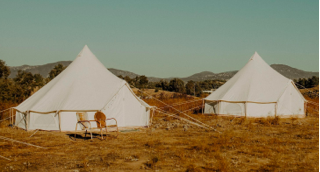FREE SHIPPING
PAY NO SALES TAX
Menu
-
- Shop
- Glamping Tents
- Wall Tents
- Canvas Tent
- Bell Tents
- Festival Tents
- Hunting Tents
- Yurt Tents
- Family Tents
- Stargazing Tent
- Cabin Tents
- Camping Gifts
- Overland Tents
- Tent Stoves
- 4 Person Tents
- 6 Person Tents
- 8 Person Tents
- 12 Person Tents
- Canvas Bags
- Camp Gears
- Camping Chairs
- Shade Canopy Tents
- Camping Fans
- Resources
- About
- Contact Us
- Reviews
-
- Login

Free Shipping

Pay No Sales Tax
30-Month Warranty
FREE SHIPPING
PAY NO SALES TAX
Tents
Shop


The LiT List
Glamping & Camping Ideas + Resources
Camping Stargazing Calendar for 2025
6 min read
One of the most awe-inspiring, jaw-dropping memories you can make is when you gaze up at the stars during a camping trip. So what are you waiting for? Grab your stargazing tent and book that campsite! With this handy 2025 stargazing calendar, we break down all the special constellations, meteor showers and camping stargazing events best seen under the dark skies of a new moon, as well as exact dates when you can enjoy a full moon for camping under the magical moonlight.
Camping Stargazing Events

January
January 3 - 4 | Quadrantids Meteor Shower
Caused by the 2003 EH1 extinct comet, this annual meteor shower will peak, raining down 25-200 shooting star meteors per hour. Look to the Bootes constellation.
January 13 | Full Moon Hides Mars
On the night of January 13th, the Wolf Moon will slide in front of planet Mars in an occultation. While the precise timing depends on location, you can catch this one earlier in the evening. Look to the east as the moon passes Mars.
January 17 - 18 | Planetary Parade
See a four-planetary alignment of Venus, Mars, Jupiter, and Saturn as they come close together in the night sky. Saturn and Venus lead the parade, shining in the southwestern sky just past sunset, followed by Mars rising in the east as Jupiter remains visible all night long. Grab a telescope for this must-see stargazing event!
February
February 19 | Venus Comes Closer to Earth
Witness Venus at its brightest as it comes closer to Earth. While this stargazing events starts on Jan. 11, Feb. 19 offers the most brilliance. You can see the brightness with your naked eye, but if it interests you, fetch your telescope for an extra treat. Since Venus is an inner planet, it becomes a crescent, shrinking each night as it passes close by.
March
March 13 - 14 | Total Lunar Eclipse
See 2025's first total lunar eclipse. Even better, this will be the Blood Moon, which gives it a deeper orange-reddish hue. Truly a sight to see! But you'll need to stay up past midnight to catch the Blood Moon's full effect.
March 29 | Partial Solar Eclipse
While it's not as impressive as the total solar eclipse of April 8th, 2024, there is a partial solar eclipse in 2025. Northeastern states and the southeastern provinces of Canada can see as much as 94% of an eclipsed sun blocked by the moon.
April
April 1 - 2 | The Jupiter, Taurus, and the Moon Cluster
See the gathering of a Taurus constellation, Jupiter, and a waxing crescent moon on this night. Look up at the west-northwestern skies about an hour after sunset to take it all in. Through a telescope, you could also see Pleiades star cluster and the Hyades cluster, along with its red star.
April 21 – 22 | Lyrid Meteor Shower
The Lyrid Meteor Shower of 2025 is going to be a great show. Since 2024's Lyrids were dampened by the moon, this year will offer a darker sky for better stargazing. It will deliver 10-20 shooting star meteors per hour. Plus, with the dark skies, you can even spot the Milky Way if you stay up later.
April 21 – 28 | International Dark Sky Week
April is Global Astronomy Month and along with it, International Dark Sky Week. So turn off your lighting and appreciate the grandeur of the night sky as it was meant to be seen.
May
May 5 - 6 | Eta Aquarids Meteor Shower
The Eta Aquarids typically produce anywhere from 45 to 85 meteors per hour, coming down at lightning speed. With a first quarter moon during the peak time, it won't be the most optimal viewing conditions like 2024's new moon, but still a pretty good 2025 show! This meteor shower peaks the night of May 5th and continues into the morning of May 6th.
June
June 11 | Strawberry Moon
The Strawberry Moon makes a nice time for a moonlit hike, especially during those hot camping trips.
June 25 | New Moon
Speaking of camping trips, a new moon offers ideal dark skies for stargazing -- a perfect opportunity for a camping trip.
July
July 28 - 29 | Delta Aquarids Meteor Shower
Producing up to 20 meteors per hour at peak, the Delta Aquarids are fairly average in 2025. Up against a second quarter moon this year, aim to camp near dark skies where there's a good chance you can spot a few after midnight.
August
August 12 and 13 | Perseid Meteor Shower
The 2025 Perseid Meteor Shower is not to be missed! This always popular shower brings in up to 60-100 meteors per hour at its peak when Earth shifts into the comet Swift-Tuttle and this year offers a spectacular show. Catch it after midnight after the moon sets for the best viewing experience.
August 19 | Mercury at Its Highest Point
The best time to view planet Mercury in 2025 as it reaches its greatest western elongation. Look for Mercury just above the horizon in the eastern sky, early morning before sunrise.
September
September 7 | Total Lunar Eclipse
On Sep. 7, the Earth will align between the sun and full Harvest moon. This 2025 total lunar eclipse is visible throughout most of North America and many other places.
September 21 | Saturn at Opposition
Saturn approaches close to Earth. During this time, it will be fully illuminated by the Sun, making it easy to catch a view at night. With your naked eyed, look for the yellow dot, but grab a telescope to see its rings and moons.
October
October 7 | Draconid Meteor Shower
While not a particularly special stargazing event of 2025, the Draconid Meteor Shower can be seen, if you play your cards right. With a full moon this year, the Draconids will have to be seen in the early evening. If you're lucky enough to have clear skies, keep your eye peeled to catch roughly 10 meteors per hour.
October 21 - 22 | Orionids Meteor Shower
However, if you don't feel like catching the Draconids, the Orionid Meteor Shower will do just fine! To catch the Orionids, falling at a rate of 10 to 20 meteors per hour, head out at its peak just after midnight.
November
November 4 - 5 | Taurids Meteor Shower
Considered a minor shower, the Taurid meteor shower peaks around this time of year. While they peak at only roughly 5-10 per hour, these larger meteors pack a punch with their size and brilliant fireball display. Sadly, the full moon makes seeing the 2025 Taurids a bit more difficult. But its still worth a try!
November 17 - 18 | Leonids Meteor Shower
The Leonids Meteor Shower only comes around every 33 years (the last was 2001). In 2024, there was a near full moon present. But this year is a new moon, making the Leonids a must-see stargazing event for 2025. Expect to see 15-20 meteors per hour.
December
December 7 | Good Views of Mercury
Mercury will be at its greatest western elongation, making this night one of the best times of 2025 to view the planet. Look toward the low skies right before sunrise to catch Planet Mercury.
December 13 - 14 | Geminid Meteor Shower
Raining through the skies at a speed 40x faster than a bullet, the Geminids come in at 120 meteors per hour and are a must-see shower to round out 2025. In 2024, there was a near full moon, but 2025 offers a near new moon, darkening skies for you. You’ll see a streak or two of these multicolored meteors — just have some patience around the morning of the 14th.
Full Moons and Supermoons of 2025
While full moons are not ideal for stargazing, they still offer a wonderful illumination for family camping trips and night adventures like hiking and more. Here is a list of the most beautiful and brightest 2025 full moons and supermoons to align with your camping weekend and calendar.
- January 13th Wolf Moon
- February 12th Snow Moon
- March 14th Worm Moon
- April 13th Pink Moon
- May 12th Flower Moon
- June 11th Strawberry Moon
- July 10th Buck Moon
- August 9th Sturgeon Moon / Blue Supermoon6
- September 7th Harvest Moon
- October 7th Hunters Supermoon
- November 5th Beaver Supermoon
- December 4th Cold Supermoon
Stellar Stargazing Campsites

Looking for a campsite with vast open skies to take in the beautiful stars, full moon, and camping stargazing events of 2025? Check out some of our favorite campsites and even stay in one of our stargazing tents.
Head to Utah for the most breathtaking night skies and book a stay at the Off Grid Stargazing Tent to make the most of your glamping experience.
Book a Hawaiian vacation at The Haven at Hawi Nani, located on the beautiful Kohala Coast with white sand beaches.
Sandpoint’s Boho Bell Tent on Lake Pend Oreille in Idaho offers a waterfront campsite perfect for daytime kayaking and nighttime stargazing.
Remember! The best places to go stargazing are ones situated far away from light pollution. Discover more areas to camp using a Dark Sky map.
Leave a comment
Comments will be approved before showing up.
Related Resources

THE LIT LIST 5 min read
Duffel Bag vs. Suitcase: Which is Right For You?
Headed on a trip? Not sure if you should pack a duffel bag or a suitcase? The choice might seem diffDuffel bag vs. suitcase: Compare the pros and cons of each to decide the ideal travel companion for you.

THE LIT LIST 7 min read
Top 5 Mistakes to Avoid When Buying a Canvas Tent
Buying a canvas tent requires a lot of decision-making and planning. With countless choices of canvaThinking of purchasing a canvas tent? Learn the top 5 mistakes to avoid when buying a canvas tent -- and what features and quality to look for instead!
Popular Blogs
Camping Gift Ideas for People Who Have Everything
The Best Portable Tent Heaters - Ways To Heat A Canvas Tent
Glamping in Northern California: 8 Luxury Sites
Waterproofing A Canvas Tent - Retreating Canvas
33 Camping Quotes to Inspire Your Next Adventure
What Is Glamping? Origins, Definition, Destinations & More
10 Tips for Staying Warm While Winter Camping
How to Maintain and Clean a Bell Tent
Essential Family Camping Checklist: What to Pack [PRINTABLE]
Backyard Glamping Checklist for an Unforgettable DIY Glampsite
Popular Products
Subscribe
Sign up to get the latest on sales, new releases and tips
BECOME AN INSIDER
We’ll periodically share inspiration, bell tent releases, special offers, and event notifications with ya.



